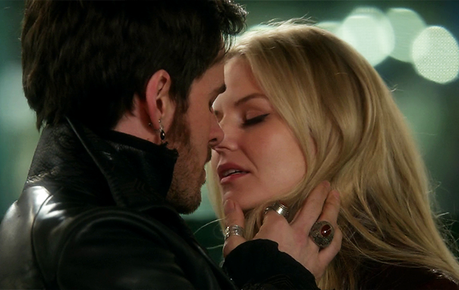When someone asks for examples of iconic fictional couples, there are a few which come to mind.
Han Solo and Princess Leia are probably towards the top of the list, with Ron Weasley and Hermione Granger not far behind.
All four of these characters are as strong-willed as they are independent.
Both couples respect and love one another for who they are, even if their respective relationships didn’t begin with that level of understanding.
Unfortunately, a handful of showrunners for popular T.V. shows don’t understand what makes a relationship healthy, and that certain characteristics in a partner must be avoided.
If a show is built around a character who struggles through an abusive relationship, then it is expected the writers address it as such.
Most of the examples that follow do not explicitly demonstrate physical abuse, a likely reason the showrunners and writers did not recognize these relationships were unhealthy.
Few toxic relationships stem directly from physical abuse, but rather begin with emotional abuse.
Seemingly small actions, like listening when another individual says “no” to advances, respecting the other person’s personal boundaries until consent is given, and listening to the other person’s concerns, are all telltale signs of a healthy relationship.
If a show is built around a character who struggles through an abusive relationship, then it is expected that writers address it as such.
Captain Hook, from ABC’s hit show Once Upon a Time, violated all three of the above in his quest to win lead female Emma Swan’s affections.
For those unfamiliar with the show, the Captain Hook on Once Upon a Time appears vastly different from the classic Disney villain, boasting a youthful, yet rugged, physique appealing to an audience of all ages.
His good looks and ‘bad boy’ attitude aided immensely to the popularity of his character and his relationship with Emma, allowing him a much longer stay on the show than the showrunners originally intended.
Would the audience have reacted differently if Hook looked more like his Disney counterpart?
The answer is most likely yes.
Their initial meeting, during which they attempted to kill each other, resulted in Hook pinning Emma on her back and taunting “normally I prefer to do other, more enjoyable activities with a woman on her back.”
Had he been framed in a more villainous light, his behaviorwould not only be viewed as disgusting and crass, but a distinct example of disrespect for members of the opposite sex.
One would hope this behavior would change with the writers’ attempt to redeem him, but nearly two seasons later Hook confronts Emma in the hopes of talking with her and when she clearly shows disinterest, he follows her and physically prevents her from leaving.
This action is made worse through his use of his hook, a formerly established deadly weapon, to grab her arm.
His blatant disrespect for Emma’s feelings is highlighted multiple times when they’re onscreen together, most recently during the previous season when she confronts Hook for lying to her and her family.
Fictional worlds and relationships continue to be an important influence on the way people view the real world, particularly for young audiences.
Instead of any apology, he complains, “this isn’t about you, it’s about me.”
It’s only through Emma and her family’s quick forgiveness of such behavior, that provides the showrunners the ability to fabricate a happy couple for Emma and Hook’s wedding several episodes later.
Hook and Emma’s relationship thrives through the same abuse presented in season 2 of the CW series Supergirl, another show following the story of a strong female lead, overtaken by a manipulative man who partakes in a questionable “redemption” story.
Mon-El, an alien like Supergirl, was a slave owner who publicly stated how much easier life was for him when he “objectified women and didn’t care about anyone.”
He blames his problems on Supergirl, and chooses to be a hero to impress her rather than out of genuine goodness.
Mon-el is given multiple opportunities to redeem himself, but he takes the time to save himself rather than his people, and constantly questions Supergirl’s motives as a hero.
Melissa Benoist, the actress who plays Supergirl, has avoided questions about her onscreen relationship, and is visibly uncomfortable with the corner her character has been written into.
Fictional worlds and relationships continue to be an important influence on the way people view the real world, particularly for young audiences.
The sooner these screenwriters realize what kind of message they are sending to the world’s young population, the easier it will be for young men and women to notice the signs of an unhealthy relationship and avoid them.
